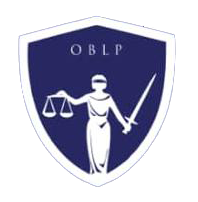A cliché that constantly represents our current reality is the unimaginable revolution that the internet has brought and continues to beam on humanity and its associated activities all over the World. Relying on the erstwhile unguarded freedom that came with the internet is also the urgent need for some measure of control, regulation and/or moderation of the activities that go on in that virtual space, in a bid to replicate what is obtainable in the actual civilized World.
Sometimes in all these, comes the phrase “Internet Governance”. A caption that was initially used in connection with the governance of internet identifiers such as domain names and IP address, which led to the formation the Internet Cooperation for Assigned Names and Numbers of (ICANN)
The Internet Society has defined internet governance as “the processes that impact how the internet is managed”3 while the www.internetgovernance.org (hosted by the School of Public Policy at Georgia Institute of Technology) defines it as “the rules, policies, standards, and practices that coordinate and shape global cyberspace.
I will simply define it as “the exercise of control over activities on the internet.”
My intervention here would be from the perspectives of law, policies, and rights.
Inclusive local internet governance
To start with, in the inclusive internet index commissioned by Facebook but conducted by The Economist Intelligence Unit, Nigeria was ranked the 4th position in Africa behind South Africa, Morocco, and Egypt. If you think we have done badly, in spite of our contemporarily affordable but slow access to the internet, then your thought is as good as mine.
Now, coming to inclusivity of internet governance, if we were to be ranked, I am afraid, our ranking would be much lower owing to several factors including:
-
Lack of cohesion among stakeholders
-
Lack of clear cut strategy
-
Regulatory incoherence and then
-
Inadequate or non-existent education
The NIGF, like its global body, ought to be a think tank and propeller for internet governance conversations, policy/legislative change and development but in my respectful opinion, it sadly does not enjoy deserved patronage from stakeholders in the industry as evidenced on the internet. Except, we are to believe that the collaboration and working exist offline which in itself, is a betrayal of the “internet” that they appear to govern.
As far as internet enthusiasts are concerned – Whatever is not on the internet does not exist at all.
Building through Education
According to Wikipedia:
“Education is the process of facilitating learning, or the acquisition of knowledge, skills, values, beliefs, and habits.”
Let me start this with a personal confession. I got familiar with the term “internet governance” for the first time in November 2018 at the 12th Internet Governance Forum in Paris. To think that I have been litigating rights on the internet for over 4 years and never had anything to do with “internet governance” as a topical issue/activity says a whole lot about the average Nigerian’s knowledge-base of “internet governance”.
By commission or omission, a whole lot of us have been excluded from participatory internet governance but unsurprisingly, we keep suffering from the receiving end of internet governance by regulatory agencies.
For instance, while the Nigerian Communications Commission attempted regulating data floor in 2017 which move would have seriously negatively impacted the use of the internet in Nigeria, the police continues to arrest and arraign people for violating the Cybercrime (Prohibition and Prevention) Act and the same NCC recently reeled out the Internet Code of Practice which is a subject of litigation.
Formal education
Commendably, the NIGF in conjunction with the Internet Society (Nigeria branch) had their first Nigeria School of Internet Governance earlier this week. This is, no doubt, a right step in a right direction towards formally educating people on the nitty gritty of internet governance.
Periodic trainings, seminars and workshops ought to be held, not only by NIGF but all other stakeholders to inform the public on participatory internet governance.
Regulatory agencies also have a lot of work to do in educating their subjects on internet governance and the expectations on role-playing on the part of the stakeholders.
NITDA should be commended for their work but they need to do more on educating the public on the NDPR. As it stands today, the GDPR is sadly, far more known in Nigeria than the NDPR.
The NDPR is comprehensive and useful but if the Data subjects are not well informed of their rights thereunder, they can’t take advantage of same and inclusivity will continue to remain an issue for discourse.
Informal Education
The Nigerian social media activity is as vibrant as it can get, hence such dynamism must be exploited to inform social media users of internet governance and its gains as well as expectations and role-playing.
For example, not many Nigerians are aware of section 24 of the Cybercrime Act which prohibits sending of grossly offensive messages to another through electronic means.
Citizen’s awareness of the rights and obligations embedded in the NDPR is also yet to gain the expected momentum as many government agencies, Data collectors and even Data subjects are not aware of the existence of NDPR not to talk of its provisions on rights, obligations and penalties
Conclusion
The essentiality of educating the Nigerian populace on role-playing in internet governance can never be over-flogged. Inclusivity therefor, can only be better achieved when stakeholders are duly and consistent informed of their expectations and obligations in internet governance
Education in this wise must be creative and attractive. It must neither be mainstream nor regimented if it is to achieve widespread coverage especially considering the dynamism of the Nigerian society.
1 ICANN is a non-profit organization founded in the United States, responsible for coordinating the maintenance and procedures of several databases related to the namespaces and numerical spaces of the Internet, ensuring the network’s stable and secure operation
2 The Internet Society is an American non-profit organization founded in 1992 to provide leadership in Internet-related standards, education, access, and policy. Its mission is “to promote the open development, evolution and use of the Internet for the benefit of all people throughout the world.
3 https://www.internetsociety.org/issues/internet-governance/
4 https://www.internetgovernance.org/what-is-internet-governance/



